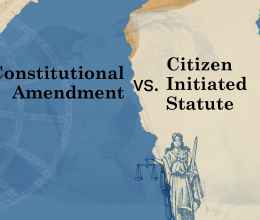Facts
The defendant-appellant, James O’Malley was convicted of an OVI Pursuant to Ohio’s forfeiture law, Medina County seized and kept his $31,000 truck—a gift from his grandparents, and his only asset. As a result, Mr. O’Malley was rendered destitute. Mr. O’Malley did not challenge the conviction but challenged this penalty, arguing that the forfeiture violated the Ohio and U.S. Constitutional prohibitions against excessive fines. The Ohio Supreme Court accepted jurisdiction over his appeal, including the assignment of error: In light of U.S. Supreme Court Precedent, the Court should revise its excessive fines clause analysis to consider financial hardship. We filed an amicus brief in support of this assignment of error.
Legal Theory
Asset forfeiture is a fine within the meaning of the Eighth Amendment’s prohibition against excessive fines. Ohio courts have long held that forfeiture orders thus must not be excessive, but the Supreme Court has never provided a test for evaluating excessiveness. As a result, lower courts use disparate tests, and have almost never concluded that any fine or forfeiture—even the forfeiture of entire apartment buildings, homes, or very often, automobiles—was excessive. The Supreme Court also does not require, and almost no lower courts have required, that a fine or forfeiture be evaluated in light of a defendant’s particular financial circumstances. Our brief argues that under the original meaning of the Eighth Amendment, and pursuant to recent precedent from the U.S. Supreme Court and several other state supreme courts, Ohio should adopt a uniform excessiveness test that includes individualized evaluation of ability to pay.
Status Update
We filed our amicus brief in support of Mr. O’Malley on December 21, 2020. The State filed its opposition brief on January 20, 2021, and Mr. O’Malley filed his response on February 8. Oral argument took place on May 12, 2021. The case was finally decided on September 15, 2022. The Ohio Supreme Court found that the forfeiture of Mr. O’Malley’s vehicle was not unconstitutional because it was not disproportional to his offense.







